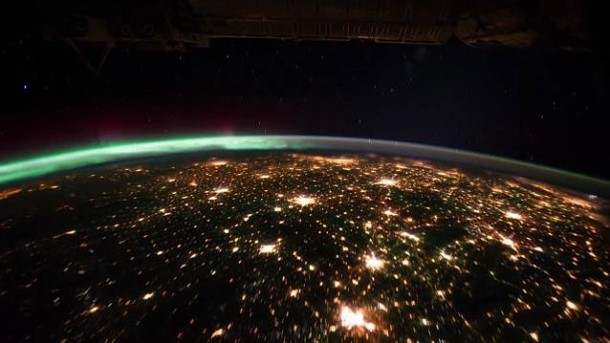Happy Moltmann Monday! In light of Earth Day last week, I’m sharing a section of God in Creation today, from the very beginning of the book where Moltmann outlines some guiding ideas for his ecological theology (bold mine, italics Moltmann’s)
Modern thinking has developed by way of an objectifying, analytical, particularizing and reductionalistic approach. The aim is to reduce an object or fact to its smallest possible, no-longer-divisible components, and from that point to reconstruct it… It is therefore quite true to say that we know more and more about less and less; … Yet modern sciences…have now proved that these forms and methods of thinking do not do full justice to reality, and hardly bring any further advances in knowledge. On the contrary, objects can be known and understood very much better if they are seen in their relationships and coordinations with their particular environments and surroundings…if, that is to say, they are integrated, not isolated; perceived in their totality, not split up.
To be alive means existing in relationship with other people and things. Life is communication in communion. And, conversely, isolation and lack of relationship means death for all living things, and dissolution even for elementary particles. So if we want to understand what is real as real, and what is living as living, we have to know it in its own primal and individual community, in its relationships, interconnections and surroundings…
When this happens, of course, the concern that motivates cognition changes. We no longer desire to know in order to dominate, or analyze and reduce in order to reconstruct. Our purpose is now to perceive in order to participate, and to enter into the mutual relationship of the living thing.
Integrating and integral thinking serves to generate the community between human beings and nature which is necessary and promotes life… On the religious level, it has to be interpreted as a ‘community of creation.’ …
If the creative God himself dwells in his creation, then he is making it his own home, ‘on earth as it is in heaven.’ All created beings then find in nearness to him the inexhaustible wellspring of their life, and for their part find home and rest in God.
Then at last the true community of created beings with one another also begins: a community which Jewish and Christian messianic traditions have called ‘the sympathy of all things.’ The bond of love, participation, communication and the whole complex warp and weft of interrelationships determines the life of the one, single creation, united in the cosmic Spirit. A many-faceted community of creation comes into being.
OK: I know that was a long reading. I wanted to be sure to share with you both his guiding principle and his theological conclusion from it. The guiding principle is this: we can’t actually know what is real by isolating and separating things. The way we see the fullness of reality is through the entire woven fabric of connectedness that shapes and forms and affects (for better and worse) its future. And when we see the world integrally, we also see creation as something we’re in together, rather than something we can look on from afar separately. That changes our motivations and understandings, because we realize that our future is wrapped up in the way we respond to climate change, and species threatened by extinction, and deforestation. It is not just the oceans and the jungles and the animal kingdom that is at stake, but our own reality. Even more, it’s the living room of God, God’s own beloved creation space, as Moltmann describes in another section. We diminish the way we can see the revealed glory of God when we care poorly for God’s creation.
I’m sure you’ve heard plenty of times about the way we’ve misunderstood God’s command in Genesis to “have dominion” over the earth. It’s a reminder once again of how important translators choose their words. A better fit is stewardship. We are given the responsibility of stewarding the world, with God, toward God’s good ends. We are to keep it, to use it rightfully, to preserve it when necessary, to foster an environment in which the environment itself flourishes. We are given this task by God because our very lives depend on it. We are not just unselfish caretakers; we do this work because by doing so we preserve our own lives, and bring them toward the flourishing God intends also for us. This is what Moltmann means when he calls it a community of creation.
God joins us in this community. In fact, God designed creation to be the space and time in which God meets us. Creation itself is a depiction of God-with-us, and God extends that presence through Christ who enters into this creation as flesh and blood. If you are wondering why we are caretakers of creation, consider that we do not know God apart from it. There is no sign, no miracle, no mystery of God that has not been communicated to us through the creation God has made. This doesn’t mean God is limited to what we see of creation, but it does mean that we are limited in knowing God through it.
When we understand the depths and heights of this reality, we begin to know that creation care is not just a responsibility but a way of life. “The earth is the Lord’s and all that is in it!” as Psalm 24 says. We cannot know God apart from creation. In fact, we cannot know the reality of our own selves until we see ourselves as one small part of this integrated community of creation. When we know this, we no longer want to dominate creation or harm it. We realize we are called instead to participate in this mutual relationship of living things, of alive-ness. And what we find is that life abundant awaits us there.

Add Your Voice!